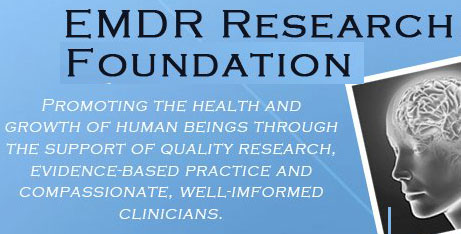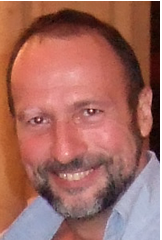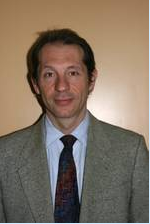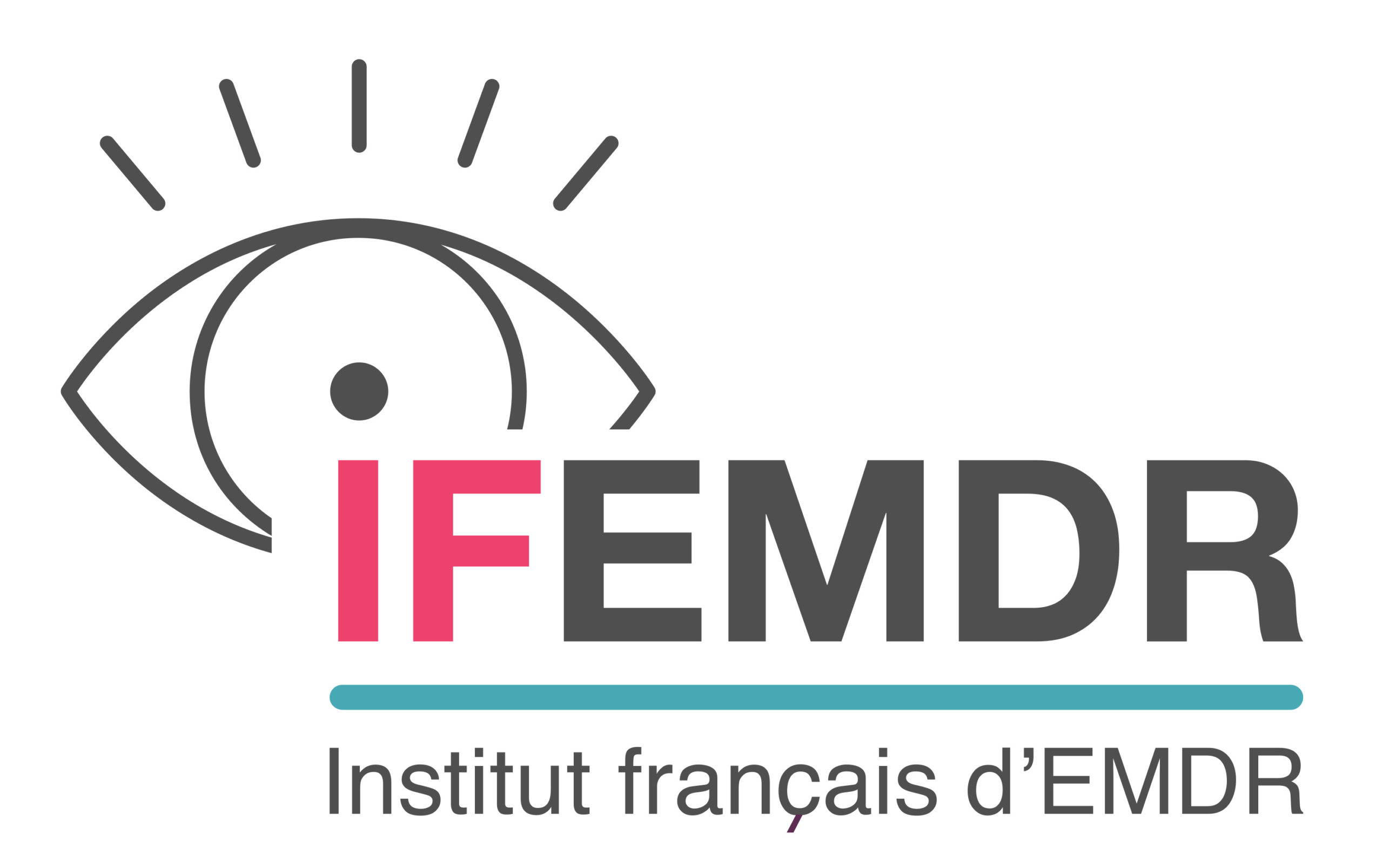
Subventions de recherche en EMDR
Mis à jour le 10 octobre 2022
L’EMDR Research Foundation vient d’attribuer 3 subventions de recherche en EMDR
deux prix de 25 000 dollars à :
- Marco Pagani
- Luca Ostacoli et Arne Hofmann
et un prix de 1000 dollars à :
- April Wise
Ces subventions recherche sont destinées aux étudiants post-doctorants, professeurs d’université ou clinicien menant des recherches sur la thérapie EMDR .
 Marco Pagani est médecin, neurophysiologiste, chercheur à l’Institut des sciences cognitives et des technologies du conseil national italien de recherche. Ses travaux portent sur la physiopathologie de flux sanguin cérébral, le métabolisme, l’activité électrique et l’anatomie du cerveau, appliquée aux troubles neurodégénératifs, neurologiques et psychiatriques. Ces dernières années, il a encadré des étudiants doctorants travaillant sur diverses formes de dépression, les PTSD, et l’autisme et a acquis des connaissances approfondies dans le domaine des enquêtes neuropsychologiques et neuropsychiatriques. Il a publié plus de 70 articles complets, dont 11 articles liés à l’EMDR. Il est critique pour les revues les plus pertinentes en neuroimagerie, a présenté plus de 100 communications lors de conférences internationales (20 sur des recherches liées à EMDR) et a été récompensé par deux prix (un nationale et un européenne) pour ses études sur le syndrome de stress post-traumatique et l’EMDR.
Marco Pagani est médecin, neurophysiologiste, chercheur à l’Institut des sciences cognitives et des technologies du conseil national italien de recherche. Ses travaux portent sur la physiopathologie de flux sanguin cérébral, le métabolisme, l’activité électrique et l’anatomie du cerveau, appliquée aux troubles neurodégénératifs, neurologiques et psychiatriques. Ces dernières années, il a encadré des étudiants doctorants travaillant sur diverses formes de dépression, les PTSD, et l’autisme et a acquis des connaissances approfondies dans le domaine des enquêtes neuropsychologiques et neuropsychiatriques. Il a publié plus de 70 articles complets, dont 11 articles liés à l’EMDR. Il est critique pour les revues les plus pertinentes en neuroimagerie, a présenté plus de 100 communications lors de conférences internationales (20 sur des recherches liées à EMDR) et a été récompensé par deux prix (un nationale et un européenne) pour ses études sur le syndrome de stress post-traumatique et l’EMDR.
Titre de son projet de recherche : Neurobiological features and response to EMDR treatment of PTSD in breast cancer patients
Résumé : Stress and or trauma-related symptoms among cancer patients have been recently investigated and associated to disease diagnosis and to the the potential life-threatening situation. Assuming that brain regions involved in PTSD in cancer patients are the same showing changes in different psychological traumas, is possible to deduce that therapies effective to treat PTSD in populations would do the same in cancer-related psychological treatment. To date no neuroimaging studies have evaluate the neurobiological effect of successful psychotherapeutic treatment for post-traumatic symptoms in cancer patients. The aim of the present study is: i) to treat by EMDR a cohort of breast cancer patients with PTSD; ii) to identify by Electroencephalography (EEG) the regions activated upon bilateral stimulation in both the initial symptomatic and the final asymptomatic phases; iii) to correlate the neurophysiological changes to the neuropsychological and clinical status.
En savoir plus : EMDR et TTC chez les patients atteints de cancer
 Luca Ostacoli et Arne Hofmann
Luca Ostacoli et Arne Hofmann
Chef du Service de l’Université de Psychosomatique et de psychologie clinique à l’Hôpital San Luigi de Turin (Italie). Coordinateur de Psycho – Oncologie pour le réseau oncologique Piémont. Membre de l’Association d’études psychanalytiques affiliée à la Fédération internationale des sociétés psychanalytiques (IFPS) . Consultant et superviseur de l’EMDR. Chargé de cours en psychothérapie et en psychologie clinique à la Faculté Saint Luigi de médecine et de chirurgie (Turin). Ses travaux portent sur : l’EMDR et la psychothérapie corporelle, en liaison avec les maladies médicales / chirurgicales , le traitement des troubles post-traumatiques et de l’humeur.
 Le docteur Arne Hofmann est spécialiste en médecine interne et en psychosomatique. Il est le directeur de l’Institut d’EMDR en Allemagne. Il a appris l’EMDR en 1991 lors de sa formation au Mental Research Institute à Palo Alto en Californie. Il a introduit l’EMDR dans les pays germanophones. Il a créé l’un des premiers centres résidentiels en Allemagne pour les victimes de trauma psychique et a développé des programmes d’aide après des catastrophes, comme après l’accident de train à Eschede de 1998 ou après le tsunami de 2004. En 2003, lors de la conférence EMDRIA de Denver, il a reçu le Ronald Martinez Award pour ses contributions. Dr. Hofmann est un des membres du comité pour les lignes de conduite pour l’ESPT en Allemagne et il est le vice-président d’EMDR-Europe. Il enseigne, fait de la recherche et publie dans le domaine du trauma psychique et a enseigné dans les universités de Cologne, Witten-Herdecke, Boston et Peking. Il coordonne actuellement un projet de recherche sur l’EMDR dans le traitement de la dépression en collaboration avec des centres de quatre pays européens (en savoir plus sur Arne Hofmann)
Le docteur Arne Hofmann est spécialiste en médecine interne et en psychosomatique. Il est le directeur de l’Institut d’EMDR en Allemagne. Il a appris l’EMDR en 1991 lors de sa formation au Mental Research Institute à Palo Alto en Californie. Il a introduit l’EMDR dans les pays germanophones. Il a créé l’un des premiers centres résidentiels en Allemagne pour les victimes de trauma psychique et a développé des programmes d’aide après des catastrophes, comme après l’accident de train à Eschede de 1998 ou après le tsunami de 2004. En 2003, lors de la conférence EMDRIA de Denver, il a reçu le Ronald Martinez Award pour ses contributions. Dr. Hofmann est un des membres du comité pour les lignes de conduite pour l’ESPT en Allemagne et il est le vice-président d’EMDR-Europe. Il enseigne, fait de la recherche et publie dans le domaine du trauma psychique et a enseigné dans les universités de Cologne, Witten-Herdecke, Boston et Peking. Il coordonne actuellement un projet de recherche sur l’EMDR dans le traitement de la dépression en collaboration avec des centres de quatre pays européens (en savoir plus sur Arne Hofmann)
Titre de leur projet de recherche : Role of Eye Movement Desensitization Reprocessing (EMDR) versus Cognitive-Behavioural Therapy (CBT) in reducing depressive symptoms in patients with Current Depressive Episode and Recurrent Depression: A multicenter randomized controlled clinical trial.
Résumé : The current multicenter randomized study is organized from the EDEN network (European Depression EMDR Network) of EMDR Europe. The aim is to study if patients with current Depressive Episode and Recurrent Depressive Disorders benefit from a psychotherapeutic intervention (by using CBT or EMDR) in addition to standard clinical management. The study started in 2010 (randomization started at 1.1.2012). Two controlled pilot studies were done earlier in Germany from 2018-2012 in an outpatient and inpatient setting to check the effectiveness of adjunctive EMDR in depressive patients. Both studies yielded promising results. The first study is published by the JEMDR this august. The second is submitted to another peer reviewed journal. Both studies had no external funding and were done with volunteer work alone. The current study involves three Centers in three European Countries (Italy, Spain, Germany). Each Center randomizes patients with Current Depressive Episode and Recurrent Depressive Disorder in two treatment conditions (TAU+EMDR, or TAU+CBT). The data from all centers are collected in a web- database and will be analyzed by the Psychosomatic and Clinical Psychology Service, A.O.U. « San Luigi Gonzaga Hospital » (Italy) at the end of the intervention and at the follow-up phases (6 months, 1 year, 2 years), as described with more details in the « research design and methods » section. The centers of this study are financially independent and do most of the study on a volunteer basis like the pilot studies did. The minimum number of patients recruited by each center should be 30 patients. For the two University based centers we plan for 60 patients (Turin, Italy and Ulm, Germany). The structure of the study is such that it can succeed even if one or two centers cant fulfill their numbers of patients randomized. However, the volunteer structure that has worked well in our pilot studies slows down patient intake in our multicenter trial. That is why the time for intake of the study was recently extended to June 2015. The number of patients needed for a good consistency of the study would be 120.
En savoir plus : interview d’Arne Hofmann.
 April Wise est thérapeute familiale et thérapeute de couple. Elle est spécialisée dans le domaine du stress aigu et continu, des traumatisme récents et passés, de la dépresssion et de la toxicomanie, et celui de la famille. Elle travaille dans des hôpitaux et des cliniques et a également une pratique privée. En tant qu’éducateur, elle est intervenu comme professeur auxiliaire à l’UC Berkeley Extension, CSU East Bay et l’Université de JFK. Elle est superviseur EMDR et encadre des groupes de praticiens EMDR.
April Wise est thérapeute familiale et thérapeute de couple. Elle est spécialisée dans le domaine du stress aigu et continu, des traumatisme récents et passés, de la dépresssion et de la toxicomanie, et celui de la famille. Elle travaille dans des hôpitaux et des cliniques et a également une pratique privée. En tant qu’éducateur, elle est intervenu comme professeur auxiliaire à l’UC Berkeley Extension, CSU East Bay et l’Université de JFK. Elle est superviseur EMDR et encadre des groupes de praticiens EMDR.
Titre de son projet de recherche : The Effect of Two Protocols of Eye Movement Desensitization and Reprocessing on Persons with Co-occurring PTSD and Addictive disorders.
Résumé : The incidence of co-occurring trauma and addictive disorders in the population is known to be high. This combination also presents treatment challenges; which symptoms to treat first and how to stabilize an individual to safely address PTSD and promote on-going sobriety. The EMDR Therapy standard protocol has now been used successfully for the treatment of trauma. Several EMDR addiction-specific protocols; DeTur (Popky, 2005), CravEx (Hase, 2009), FSAP (Miller, 2012) have been utilized for the reduction of substance abuse and behavioral addictive symptoms. The purpose of this study is to acquire new knowledge of how the use of the standard protocol and an addiction protocol in treatment of persons with co-occurring disorders of trauma and addiction affects recovery. The research implements a qualitative methodology to investigate lived experiences of participants who experienced EMDR in treatment, either in private practice settings or as part of a treatment program. It is anticipated that the perspectives gained from participants’ experiences will better allow clinicians to more skillfully and safely conduct case conceptualization in the integrated use of standard and addiction-specialized protocols in treatment.
En savoir plus sur les subventions et prix de l’EMDR research fondation :$25,000 Research Grant Award,
en savoir plus :
- toutes nos news EMDR
- en savoir plus sur nos formations EMDR



